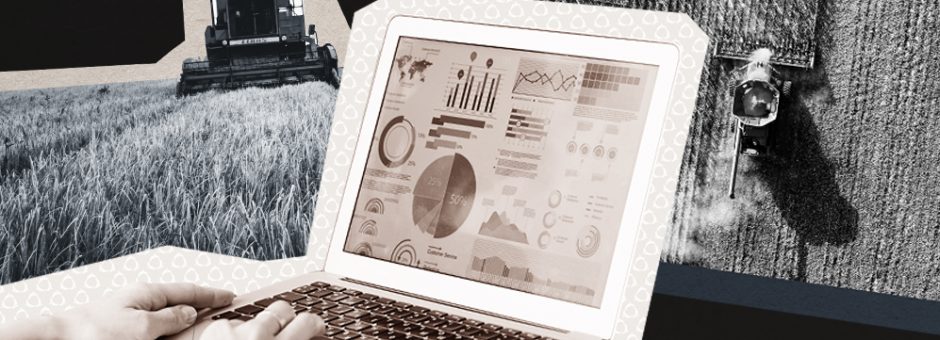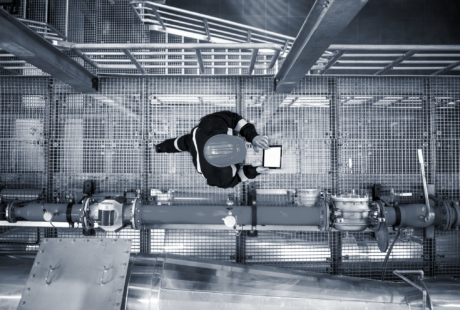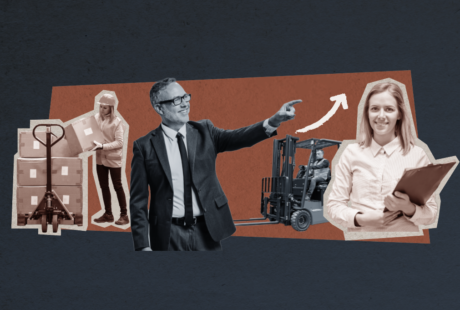The population of humans on planet earth has been steadily growing and, right alongside, the amount of food needed to keep people fed. While the size of the average farm has also increased, the total amount of farmable land has not; in fact, it’s shrinking.1 These factors, along with environmental regulations, cost pressures, trade disputes, and supply chain uncertainties, have made agricultural efficiency and sustainability important global objectives. Just as is the case in other industries, it’s technology that promises a path forward. The popular image of farming as ‘the simple life’ obscures the present reality of sophisticated agriculture operations and a competitive and lucrative ag-tech sector.
AI and Data in Precision Agriculture
Stop me if you’ve heard this one before (in any industry): data is being utilized to optimize operations. Farming is, at its core, a manufacturing process, and a vital one at that, so using all available tech to increase productivity is essential.
“Intellectual power required to optimize many on-farm decisions has moved beyond human capacity, which is quite the statement,” says Real Agriculture. “Even the smartest farmer can only ‘scale-up’ their thinking to a certain extent when they’re handling large acres. At some point, that farmer will have to make so many complex and nuanced decisions that other tools will need to be implemented to complete the puzzle.” 2
Fortunately, a host of such tools exist and are being increasingly utilized. Drone-based photography, humidity sensors, and ground based weather stations monitor conditions. Comprehensive software programs analyze these conditions and pair the data with accumulated insights relating to soil properties to formulate optimized management plans for every acre of the operation. Genetically tailored seed, pesticides and other inputs are delivered utilizing autonomous agriculture equipment. It all adds up to an advanced data-driven system that rivals those put in place by high-tech manufacturing and logistics operations. The end goal? Utilize the exact amount of input necessary to maximize efficiency, sustainability, and return, and not a bit more.
Vertical Farming
It would prove impossible to house the population of Manhattan in individual bungalows so the answer, of course, is skyward. Some heavy hitters are betting that this practice is the future of agriculture as well. Tasked with increasing the amount of crops produced in a finite area, vertical farming looks up. Complex indoor hydroponic operations grow dense crops in carefully outfitted facilities using a combination of natural and artificial light.1 The practice seeks to generate more yield per square foot, using less water, and reducing reliance on uncontrollable weather factors. Plenty, a San Francisco-based indoor vertical farm start-up counts among its investors Softbank, former Google CEO Eric Schmidt, and a relatively successful guy named Jeff Bezos.3 The operation proved scalable when the pandemic led to a spike in fresh produce demand.
“When Covid hit, that severely shocked the food chain and distribution centers were closed,” Matt Barnard, Plenty CEO, said on CNBC. “There were instances when Plenty was the only thing on the shelf. We were able to prove the extreme reliability of our farms and short food chain with our local farms.”3
Drawbacks to Agritech
While the practice is promising, the economic model behind vertical farming is unproven. Indoor pollination is an added cost as it turns out that neither humans nor robots work as cheaply as bees. While technology removes the weather variable, no operation is perfect and the technology itself becomes a potential liability should something go wrong.
On the precision ag side, technology both giveth and taketh away. The collection and sharing of the data is still improving and some producers either lack the technical ability (or economic firepower) to participate, or simply don’t want to. Rural broadband can also be a complicating factor.4
The Future of Technology in Agriculture
Current drawbacks may slow the adoption of technology in agriculture, but they’re unlikely to stop it. Ultimately, the challenges facing food production will necessitate advanced processes. Farmer Business Network touts itself as ‘the Amazon of Farming’5 and its ecommerce, data-sharing and marketing platform aims to tilt power in the grower’s direction. Another start-up hopes to find a home for so-called ‘ugly food’; produce that is perfectly edible, but isn’t deemed attractive enough for retail.6 For large-scale agriculture organizations, STEM skills are a must and hiring must be done accordingly. Our very survival is riding on it!




